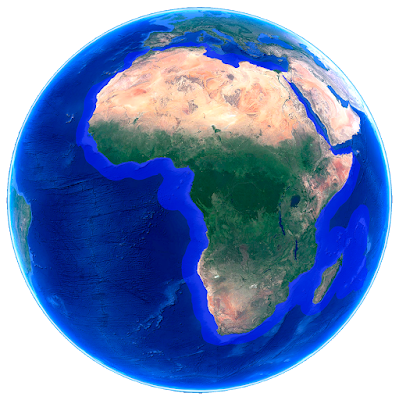GMES and Africa, and GOOS-AFRICA Joint workshop is due on 13-17 May, 2024 in Abidjan
The 5-day programme is ambitious. A strategic plan with specific and measurable objectives will be developed, together with a timetable for activities and funding levels. This workshop also aims to identify immediate actions to complete the activities of the coastal observation component of G&A
The University of Côte d'Ivoire will host the workshop. Key participants are expected from the UNESCO IOC Secretariat, the Decade Collaborative Centre on Ocean Prediction, the G&A marine consortia, centres of excellence, and various laboratories in the 5 African regions. Keynote speakers will introduce the discussions.
Key figures to know about Africa and the Ocean
- The total length of Africa's coastline, including its islands > 30 000 km.
- 38 African countries are either coastal or island states.
- Over 90% of Africa’s imports and exports are conducted by sea.
- The African fish industries employ 5.4 million people and providing essential nutrition (FAO).
- Fish contributes vitally to the food and nutritional security of over 200 million.
- About preserving the Coastal and Marine areas, the African Union has developed 2 documents, the 2050 Africa Integrated Maritime Strategy (AIM 2050) and the Agenda 2063. The Agenda 2063 recognizes the importance of coastal and marine ecosystems.
About GOOS
GOOS is the acronym for the Global Ocean Observing System. Created in 1991, GOOS is sponsored by the Intergovernmental Oceanographic Commission of UNESCO (IOC), the World Meteorological Organization (WMO), the United Nations Environment Programme (UNEP) and the International Council for Science. During its first 20 years, GOOS designed and coordinated the development of a global ocean observing system to support climate science and to serve as the primary observing system for operational forecasting systems.GOOS is based on four components
- groups of experts in physics, biogeochemistry, biology and ecosystems, which synthesise requirements and provide guidelines for the design of observing systems;
- the Observations Coordination Group and the GOOS Regional Alliances, which implement the observation systems and ensure the circulation of observations within the global networks and regional observation structures;
- GOOS projects, which drive innovation and extend the reach of the observing system; and
- central coordination through the GOOS Steering Committee and a decentralised GOOS Office.
Through these components, GOOS supports a community made up of all participants in the observing system: international, regional and national programmes, governments, UN agencies, research organisations and individual researchers. By working together on observing instruments and technologies, the free flow of data, information systems, forecasting and scientific analysis, this global community can harness the value of all these investments.
For more information: https ://goosocean.org/
GOOS Africa
GOOS Africa is one of 15 GOOS Regional Alliances. GOOS Regional Alliances (GRAs) integrate national needs into regional systems and deliver the benefits of GOOS strategy, structure and programmes at a regional, national and ultimately global level. GOOS Africa was created in 2011 and has 36 member states. It is administered by the IOC Sub-Commission for Africa and Adjacent Island States. The members of the Sub-Commission are the de facto leaders of GOOS Africa and represent the African Member States in their relations with the GOOS Regional Alliances.For more information: https://goosocean.org/who-we-are/goos-regional-alliances/ and https://goosafrica.appli.edu.ci/
GOOS Africa and GMES and Africa (G&A)
In October 2022 in Kigali, GOOS Africa and G&A agreed to work together to support the implementation of the Ocean Decade in Africa. This strategic alliance towards a win-win collaboration aims to :- Strengthen partnerships to improve the delivery of observations to end-users through scientific forecasts, services and assessments;
- Strengthen knowledge and exchange around the creation of value from ocean observations, enabling the dissemination of end-user applications at the local level;
- To maintain, strengthen and extend the coordination of observations through the GOOS AFRICA network;
- Promote standards and best practices;
- Ensure that ocean observation data and information in Africa are accessible, interoperable and reusable with quality assurance;
- Support innovation in observation technologies and networks;
- Develop capacity to ensure that more stakeholders participate and use data for their benefit;
- Develop systematic observations to understand human impact on the ocean; and
- Play a leading role in establishing effective governance for in situ and satellite observations in Africa, in collaboration with partners and stakeholders.
It is important that a strategic reflection is maintained to select the activities to be carried out immediately and to project a medium-term action plan. This strategic plan is urgent given that ocean observation has become more crucial than ever, as our understanding of this complex ecosystem plays a fundamental role in preserving life on Earth. There are many current issues linked to ocean observation, and they require a strategic response to ensure the sustainability of this environment.

Links between G&A, ClimSA and the AU AIM Strategy











Comments
Post a Comment